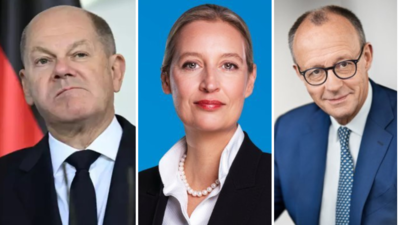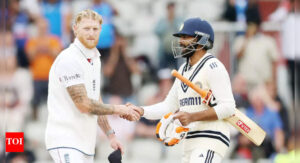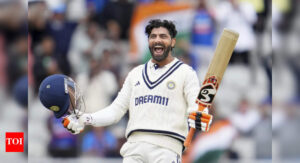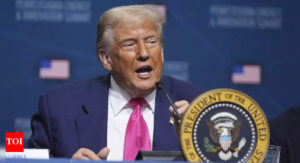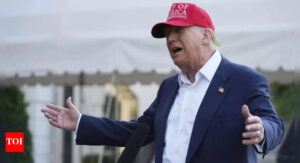Germany elections 2025: Who are the top candidates for German chancellor race?

German voters will choose their next government on 23 February, with key issues such as immigration control and reviving the EU’s largest economy taking center stage in the snap election.
The upcoming election, originally scheduled for 28 September 2025, has been dramatically brought forward following the collapse of Chancellor Olaf Scholz‘s center-left coalition government late last year.
The upcoming election unfolds during a period when Germany confronts several critical issues, including its declining economy, debates over immigration policies, the growing influence of the far-right AfD (Alternative for Germany) party, and public concerns following violent incidents in Mannheim, Solingen, Magdeburg, and Aschaffenburg.
Meanwhile, Germany’s economic outlook remains bleak, with the country experiencing two consecutive years of decline for the first time in decades. High energy costs, excessive bureaucracy, and stiff competition from China have weakened its industrial base, particularly the once-dominant automotive sector, which is struggling to adapt to the demand for electric vehicles, according to BBC.
As the election approaches in a week, polls indicate the conservative parties are ahead – with Friedrich Merz‘s CDU commanding approximately 30% support whilst Alice Weidel‘s AfD holds about 20% of voter intentions.
The current Chancellor Olaf Scholz’s SPD trails in third position at 15% in the polls, followed by coalition partner Robert Habeck‘s Green Party securing just above 13% of projected votes.
Who are the top candidates?
Friedrich Merz (CDU) – The Frontrunner: Friedrich Merz, leader of the Christian Democratic Union (CDU), is the frontrunner in the German election, with polls showing his party leading at 30%. A pro-business, social conservative, Merz has long been a rival to former chancellor Angela Merkel and is running under the slogan “A Germany we can be proud of again.”
His key policies focus on cutting taxes, slashing welfare spending by €50 billion, and implementing permanent border controls with stricter asylum rules to curb immigration.
Merz also supports boosting Germany’s defence spending, maintaining at least 2% of GDP for military purposes, and potentially introducing compulsory military service. He advocates stronger European leadership and unwavering support for Ukraine, refusing to rule out its future NATO membership.
However, Merz has faced controversy over his party’s immigration stance, particularly after he sought to pass stricter asylum policies with the support of far-right AfD votes, despite publicly ruling out cooperation with them.

Olaf Scholz (SPD) – The Incumbent Chancellor: Olaf Scholz, the current chancellor and leader of the Social Democratic Party (SPD), has seen his party’s support decline to 15%, placing third in the polls. His government has struggled due to the economic effects of Russia’s war on Ukraine and disputes over Germany’s debt rules.
Despite internal opposition, Scholz has pledged continued military aid for Ukraine but has faced criticism for being too slow in providing support. His economic agenda includes raising the minimum wage to €15 per hour, lowering income tax for most households, and creating a €100 billion investment fund to boost public infrastructure and green energy.
While supporting faster deportations for rejected asylum seekers, Scholz also backs maintaining dual citizenship and streamlined immigration for skilled workers. Despite internal party dissatisfaction, Scholz remains the SPD’s candidate, though some members had preferred Defence Minister Boris Pistorius to run instead.
Alice Weidel (AfD) : Alice Weidel, leader of the far-right Alternative for Germany (AfD), has surged in popularity, with her party polling at 20%, placing second.
Known for her hardline stance on immigration, Weidel supports mass deportations under “remigration” policies, the closure of Germany’s land borders, and the elimination of EU-wide asylum rules.
She has advocated for lower taxes, drastic reductions in bureaucracy, and strict adherence to Germany’s constitutional debt brake but has not outlined clear plans on how to fund these policies.
Weidel has gained popularity among young voters on social media and has received endorsement from billionaire Elon Musk, but her party remains isolated from mainstream political coalitions.
Robert Habeck (The Greens): Robert Habeck, co-leader of The Greens, is currently polling between third and fourth place, tied with the SPD. His party advocates for a green economic transition, proposing a publicly funded investment plan to modernize Germany’s infrastructure while reforming the debt brake to allow more spending.
Although previously strong on climate policies, The Greens have softened their stance, now pushing for cheaper energy solutions such as overhead power lines instead of expensive underground cables.
Habeck supports keeping Germany’s defence spending at 2% of GDP, deeper EU integration, and stronger arms cooperation across Europe. His party has backed continued support for Ukraine, including NATO membership, and opposes the outsourcing of asylum processes to third countries. However, Habeck’s controversial heating policy reforms led to a drop in his party’s approval ratings, weakening their standing ahead of the election.
Sahra Wagenknecht (BSW) : Sahra Wagenknecht, leader of the newly formed BSW party, has positioned herself as an alternative to both the far-right AfD and mainstream left-wing politics, polling between 4% and 6%.
She brands her ideology as “left conservatism,” supporting tough immigration restrictions, opposing German military aid to Ukraine, and advocating for closer economic ties with Russia. Wagenknecht calls for lower energy prices, the repeal of heating regulations, and higher minimum wages, while maintaining strong public welfare programs.
However, her pro-Russian stance and skepticism of climate policies have made her a controversial figure, and she risks failing to reach the 5% threshold required to enter parliament.

Christian Lindner (FDP): Following a contentious budget disagreement, Scholz dismissed his Finance Minister Christian Lindner, leading to the ruling coalition’s breakdown. His pro-business FDP party’s support has subsequently declined to 4% in polls.
The FDP, with its conservative fiscal stance, resists debt brake modifications, which resulted in Lindner’s dismissal. Their economic proposals include lowering corporate taxation to under 25% and reducing restaurant food VAT to 7%.
The party advocates stricter unemployment benefit regulations, proposing to withdraw support from individuals who fail to demonstrate active job-seeking efforts. Regarding immigration policy, they propose transferring deportation authority from state to federal jurisdiction.
The party supports Ukraine through advocacy for long-range Taurus missile provision, despite Scholz’s consistent opposition, and promotes establishing a German volunteer military force.
Heidi Reichinnek and Jan van Aken (The Left ): “The Left Party is experiencing unprecedented growth,” party co-chairman Jan van Aken told German agency, Deutsche Welle.
“Over 81,000 individuals have joined, seeking political representation that champions affordable living and fair wages,” he added.
The far-left party’s records indicate that since January 1, they have welcomed more than 23,000 new members, with a significant portion (17,470) joining after January 29, when the conservative Christian Democrats (CDU) gained a majority for an anti-immigration proposal through votes from the far-right Alternative for Germany (AfD).
This development violated an established norm in German politics where mainstream, democratic parties traditionally avoid collaboration with the extreme right. Subsequently, this has triggered massive demonstrations across various cities, drawing hundreds of thousands of participants.
